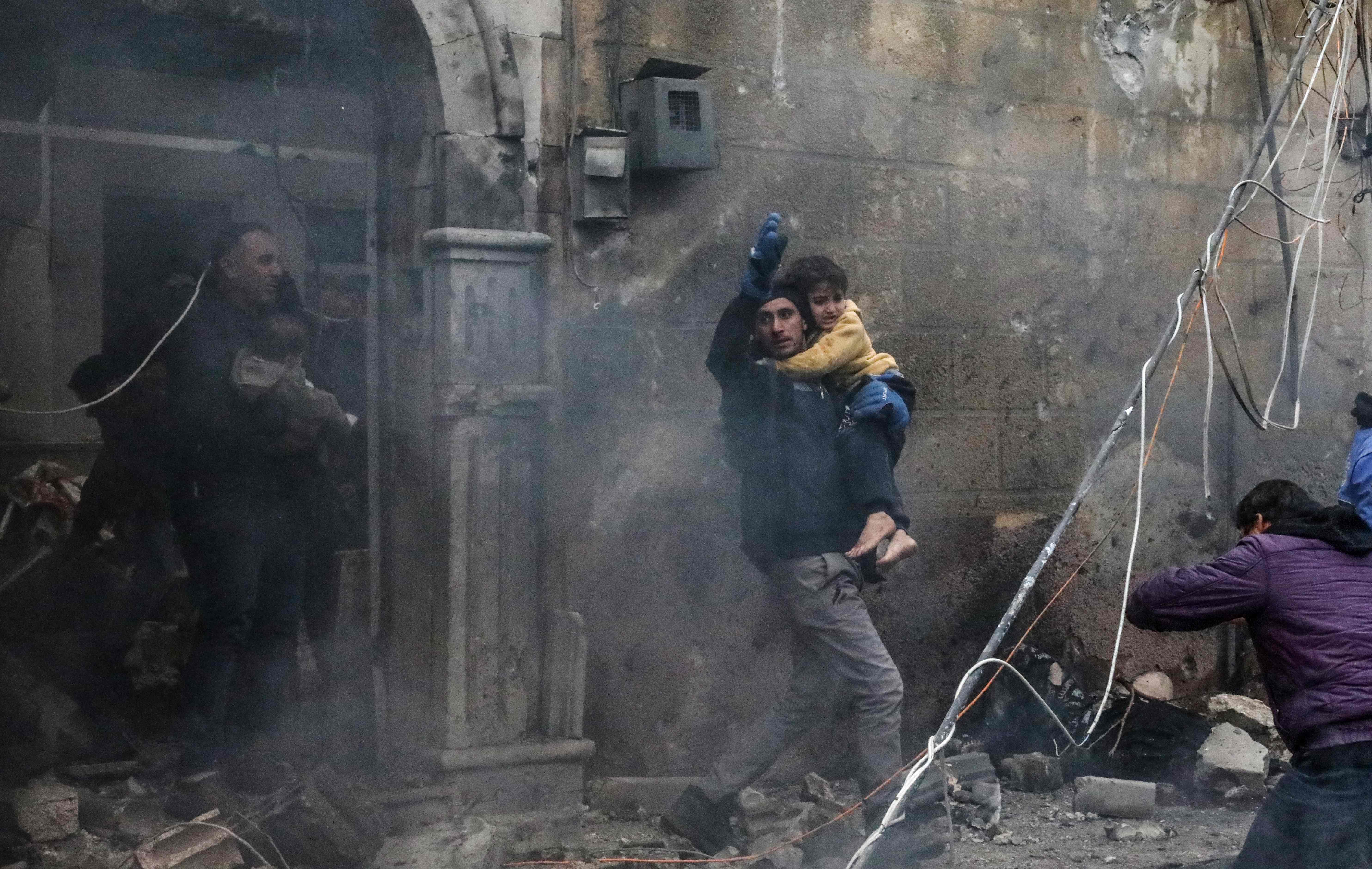Northern Syria rocked by string of deadly bombings, alarming Turkey
At least 20 killed in attacks over the weekend in a spate of violence not seen since 2019

Your support helps us to tell the story
From reproductive rights to climate change to Big Tech, The Independent is on the ground when the story is developing. Whether it's investigating the financials of Elon Musk's pro-Trump PAC or producing our latest documentary, 'The A Word', which shines a light on the American women fighting for reproductive rights, we know how important it is to parse out the facts from the messaging.
At such a critical moment in US history, we need reporters on the ground. Your donation allows us to keep sending journalists to speak to both sides of the story.
The Independent is trusted by Americans across the entire political spectrum. And unlike many other quality news outlets, we choose not to lock Americans out of our reporting and analysis with paywalls. We believe quality journalism should be available to everyone, paid for by those who can afford it.
Your support makes all the difference.A series of deadly bombings in an area of northwestern Syria under the shaky control of Turkey has raised alarm bells in Ankara, which has blamed Kurdish rebels for the attacks.
At least 20 people were killed in three bombings on Saturday and Sunday, a spike in violence in a corner of the country that Turkey has established as a supposed safe haven for Syrians escaping the country’s smouldering civil war and the wrath of the country’s ruler, Bashar al-Assad.
Footage from the attacks was disturbing, with images of bloodied children and panicked pedestrians rushing through smoke-filled streets to rescue the injured. At least one child was among the dead, according to rescue workers and local media.
“All the bombings target the civilian gathering sites, in the green market, in front of bakeries and in the neighbourhoods,” one resident of the northwestern city of Afrin said in an online exchange. “Life here has become horrific with bombings, arrests and high prices.”
Many of those living in northwest Syria have already suffered through a decade of civil conflict, often displaced repeatedly before they wound up in war-ravaged towns with few public services.
“These people faced evacuation and were forced to leave their cities and live in tents and refugee camps,” said Navvar Şaban, a Syria expert at the Omraan Institute, a think tank in Istanbul. “Then they faced Covid-19, and now this.”
A truck laden with explosives struck in an industrial area of the city of Afrin on Saturday, killing at least eight civilians. Two more bombs went off on Sunday: one near the centre of the border town Azaz, killing six civilians; and the other at a checkpoint near al-Bab, another town near the Turkish frontier, killing six members of the Ankara-backed Syrian military forces.
Experts say the spike in violence was the worst since a bloody month of attacks in enclaves under de facto Turkish authority in July 2019. The attacks are a reminder of the explosive undercurrents that continue to pulsate in northern Syria, a hodgepodge of rival armed groups backed by foreign powers including Turkey, Russia, the United States and Iran.
The areas targeted include those previously claimed as part of an enclave previously controlled by the Kurdish-led Syrian Democratic Forces, which Ankara considers a front for its longtime enemies the Kurdistan Workers Party (PKK), which is listed by Turkey, the European Union, and the US as a terrorist organisation.
The SDF, which cooperates with the western armed forces in an effort to keep Isis extremists at bay, accuses Ankara of being an occupying force and carrying out indiscriminate attacks on Kurdish civilians in the area.
But experts note that many of the attacks appear to be coming from areas of the country under the control of the Syrian Kurds and their armed forces and that the attacks appear to systematically target districts of the country that the SDF and its political leadership claim as part of a Syrian Kurdish homeland. The SDF has denied they are behind the bombings.
“The attack tactics, locations and time frame and way of conducting the attacks all indicate the involvement of the [Kurdish-led forces],” said Omer Ozkizilcik, an analyst at the Turkish government-aligned think tank SETA.
These people faced evacuation and were forced to leave their cities and live in tents and refugee camps
SETA has tracked 120 attacks, including around 50 car bombs, targeting Turkish-controlled parts of Syria in 2020. Mr Ozkizilcik said many of the would-be assailants are duped into staging attacks.
He described an early 2020 incident in which a driver departing from Raqqa was stopped at a checkpoint manned by Syrian Kurds, and briefly taken away for questioning. Later, Turkish-backed fighters at a later checkpoint en route to the Syrian town of Tel Abyad found a bomb attached to his vehicle.
The attack on a checkpoint south of al-Bab on Sunday unfolded similarly. A car coming from a Kurdish-controlled district pulled up to a checkpoint, and the bomb exploded after it had been discovered, killing six member fighters and the driver of the vehicle.
Experts say the attacks are meant to drive a wedge between the Turkish-backed authorities and the local population, sowing mistrust and confusion that insurgents can exploit in a long-term effort to drive Ankara from the country.
“These attacks create a gap, and the Turkish forces need to fill that gap,” Mr Şaban said. “Unfortunately the attacks will never stop. But Turkish forces will never leave the area.”

Join our commenting forum
Join thought-provoking conversations, follow other Independent readers and see their replies
Comments